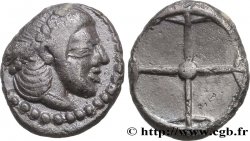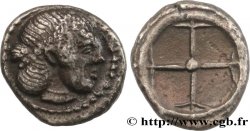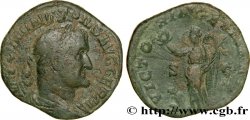E-auction 498-408021 - bgr_392201 - SICILY - SYRACUSE Obole
You must signin and be an approved bidder to bid, LOGIN TO BID. Accounts are subject to approval and the approval process takes place within 48 hours. Do not wait until the day a sale closes to register. Clicking on « bid » constitutes acceptance of the terms of use of cgb.fr private e-auctions.
Bids must be placed in whole Euro amounts only. The sale will start closing at the time stated on the item description; any bids received at the site after the closing time will not be executed. Transmission times may vary and bids could be rejected if you wait until the last second. For further information ckeck the E-auctions F.A.Q.
NO BUYER'S FEE.
NO BUYER'S FEE.
| Estimate : | 225 € |
| Price : | 130 € |
| Maximum bid : | 155 € |
| End of the sale : | 31 October 2022 14:00:00 |
| bidders : | 11 bidders |
Type : Obole
Date: c. 480-470 AC.
Mint name / Town : Syracuse, Sicile
Metal : silver
Diameter : 9,5 mm
Weight : 0,71 g.
Rarity : R2
Coments on the condition:
Exemplaire sur un petit flan irrégulier bien centré des deux côtés. Belle tête archaïsante
Catalogue references :
Obverse
Obverse legend : ANÉPIGRAPHE.
Obverse description : Tête féminine à droite avec un cordon perlé dans les cheveux et un collier ; une partie de la chevelure tombant sur la nuque.
Reverse
Reverse legend : ANÉPIGRAPHE.
Reverse description : Roue à quatre rayons avec un moyeu central.
Commentary
Poids léger. Il s’agit bien d’une obole et pas d’une litra. Ce type pourrait avoir inspiré le monnayage primitif de Massalia (Marseille) à la roue avec les oboles au Lacydon (voir MONNAIES XV, n° 48). Le revers servira de modèle à la litra à la tête casquée (cf. MONNAIES XV, n° 46).
Lightweight. It is indeed an obol and not a liter. This type could have inspired the primitive coinage of Massalia (Marseille) on the wheel with the Lacydon obols (see COINS XV, n° 48). The reverse will serve as a model for the litra with a helmeted head (see COINS XV, n° 46)
Lightweight. It is indeed an obol and not a liter. This type could have inspired the primitive coinage of Massalia (Marseille) on the wheel with the Lacydon obols (see COINS XV, n° 48). The reverse will serve as a model for the litra with a helmeted head (see COINS XV, n° 46)







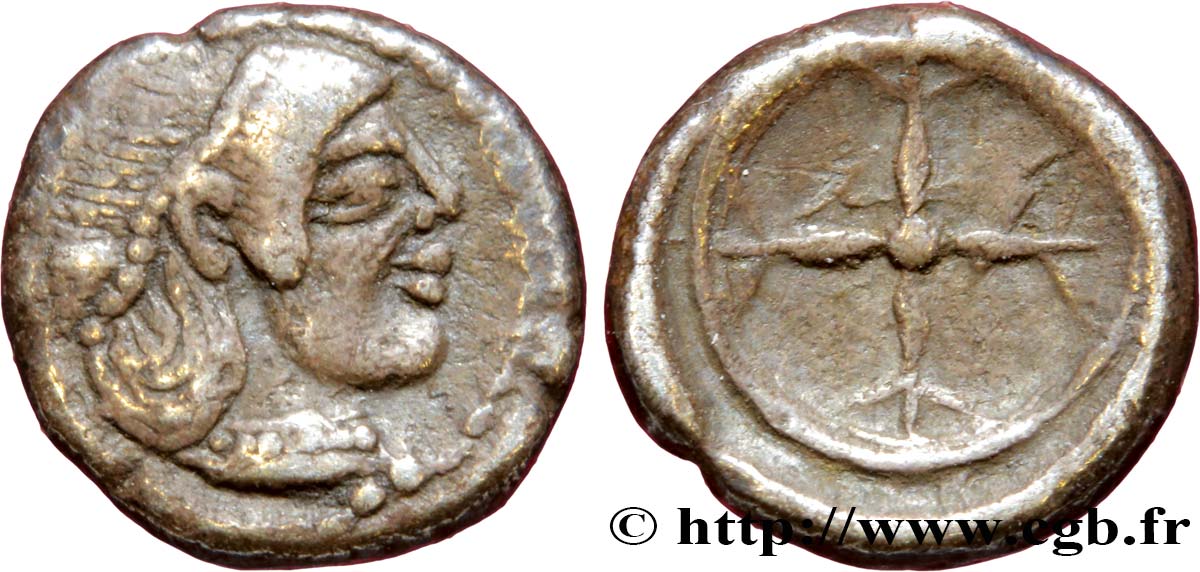
 Report a mistake
Report a mistake Print the page
Print the page Share my selection
Share my selection Ask a question
Ask a question Consign / sell
Consign / sell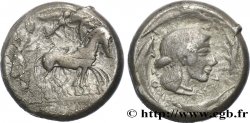
 Full data
Full data